14 years of integrated sea studies at the University of Tokyo The Ocean Alliance Collaborative Research Organization
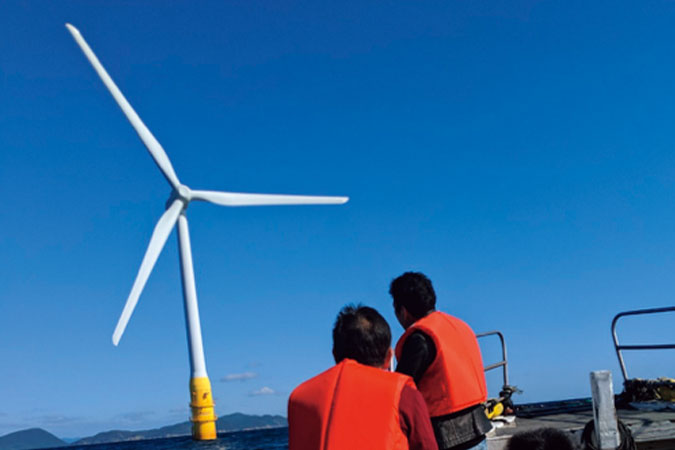
A collection of research and educational activities related to the birthplace of all life
The year 2021 marks the start of the United Nations Decade of Ocean Science for Sustainable Development, a major campaign to advance the science of the ocean, which is the birthplace of all life and sustains the lives of organisms on Earth. This year, the University of Tokyo welcomed as its new president a scientist who has lived and worked with the ocean. From engineering, physics and biology to agriculture, law and economics, we introduce UTokyo’s ocean research and marine education activities as illustrated by examples from various fields.
| UTokyo Ocean Project 2 |
14 years of integrated sea studies at the University of Tokyo
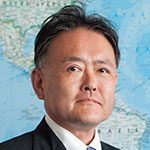 Shingo Kimura
Shingo KimuraDirector, Ocean Alliance
Professor, Graduate School of Frontier Sciences / Atmosphere and Ocean Research Institute
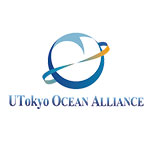
The Ocean Alliance has played an indispensable role in communicating ocean-related education and research being conducted at the University of Tokyo – including through student education programs, internships and symposia that bring together sea studies from across the University. We had a chance to talk with the Alliance’s director, Professor Kimura, about its fourteen-year history.
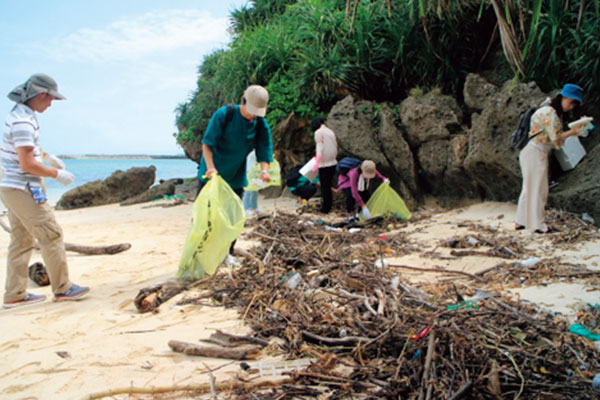
The Ocean Alliance is a university-wide network that was founded in 2007 in response to growing awareness of the need to promote sea-focused research and education across organizational boundaries. Until then, although many of the University’s organizations had been engaged in sea-related activities – such as at the Ocean Research Institute (now the Atmosphere and Ocean Research Institute), the Department of Planetary Science and Marine Biological Station affiliated with the Graduate School of Science, programs like Aquatic Bioscience in the Graduate School of Agricultural and Life Sciences, and Ocean Engineering at the Graduate School of Engineering and Institute of Industrial Science – hardly any horizontal collaboration was taking place, especially with regard to educational components.
In 2009, we launched an interdisciplinary marine education program for graduate students as a cornerstone of cross-organizational education. Students affiliated with different organizations took part in four projects – marine biosecurity to prevent the spread of infectious diseases at the border, offshore wind power generation, marine plastic waste and food security – participating in joint lectures and exercises to engage in Problem-Based Learning (PBL) at the frontlines of each project area. Moreover, we offer introductory lectures to first- and second-year students at Komaba Campus on “The Frontiers of Sea Studies” and convene a university-wide hands-on seminar titled “Learning by the Sea: A Practical Learning Experience at a Marine Biological Station.”
We have also focused on building an internship program, and launched an overseas dispatch system in 2014. We send students on 3- to 6-month long postings at organizations including the United Nations Industrial Development Organization (UNIDO), Food and Agriculture Organization (FAO) and International Maritime Organization (IMO). To date, 50 students have gone to 10 institutions to engage in a practical field-based exploration of measures for solving various problems facing the world.
In our research, we are continuing with initiatives that take advantage of the fact that there are more than 250 ocean-related researchers at our university alone. Take for example the development of methods for building consensus about how the ocean should be used. At sea, there is a need to build consensus among a variety of stakeholders, not to mention issues such as EEZ (exclusive economic zones) and BBNJ (the Marine Biodiversity of Areas Beyond National Jurisdiction). In fact, there is a lot of red tape just to be able to draw water from another country’s EEZ, and the existence of these legal ramifications is a contemporary reality of conducting scientific research at sea. With the participation of social science researchers from organizations such as the Graduate School of Public Policy and the Institute for Advanced Studies on Asia, we have spent several years identifying a variety of problems and publishing guidelines for the use of the ocean.
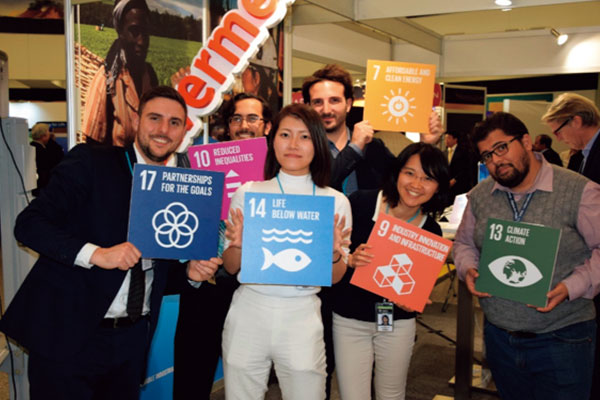
Some of our other organizational research priorities have focused on advanced research into preventive measures for protecting lives in the event of a mega-tsunami, elucidating the migratory ecologies of marine organisms, and micro/nano marine hybrid sensing. The Okinotorishima and Small Island Countries Program has grown significantly based on our study group. With measures including conservation through the formation of coral reefs, ecological engineering technologies have been useful in providing support to countries wrestling with rising sea levels. Another characteristic initiative is the Hiratsuka Tower Program, which uses an observation tower located one kilometer offshore in Kanagawa Prefecture. The tower allows observers to obtain offshore data on phenomena like waves, water levels, water temperature and wind without relying on the use of a massive observation ship. This data is provided to the prefecture in real time and serves as a basis for surfers and fishers for making decisions when heading to sea.
As a part of our outreach activities, we convene annual symposia on “Sea Studies at the University of Tokyo” – and we intentionally use the term “sea studies” (umi kenkyuu) instead of “ocean studies” (kaiyou kenkyuu). The history of the past fifteen occasions could be described as a chronicle of the research that has taken place at UTokyo in connection with the sea. Centered on the knowledge and networks we have cultivated thus far, we intend to continue contributing both to Japan, which is surrounded by the sea, as well as to the rest of the world.
| 1 | Blessings and Calamities from the Sea |
| 2 | Thinking about the Future from the Sea |
| 3 | New Points of Contact between Humanity and the Sea |
| 4 | The Sea Today and Tomorrow |
| 5 | The Sea as a Global System |
| 6 | A Scientific Approach to Earthquake Disasters |
| 7 | Envisioning Future Relationships Between Humanity and the Sea |
| 8 | An Age of Disruption |
| 9 | Points of Contact between Ocean Research and Society |
| 10 | New Methods and Perspectives Overturning Conventional Wisdom about the Ocean |
| 11 | Ocean Alliance Initiatives at the Forefront of Ocean Research |
| 12 | Recommendations to Society |
| 13 | Highlighting Recent Achievements by Young Researchers |
| 14 | Fisheries Reform and the Future of Fish as Food in Japan |
| 15 | The State of Research on Marine Plastics |
- “Highly Efficient, Safe and Secure Maritime Transportation Systems”
- “Ocean Methane Hydrates as a Resource”
- “The Sea in International Politics”
- “New Technologies for Observing Underwater Organisms with Audiovisual Imaging”
- “Deep Sea ‘Clouds’ and Microorganisms”
- “The Causes of the Huge Tsunami Produced by the 2011 Earthquake Off the Pacific Coast of Tohoku”
- “Prospects for Women’s Advancement Fostered by Ocean Literacy”
- “Analyzing Fish Behavior Using Oxygen Isotopes”
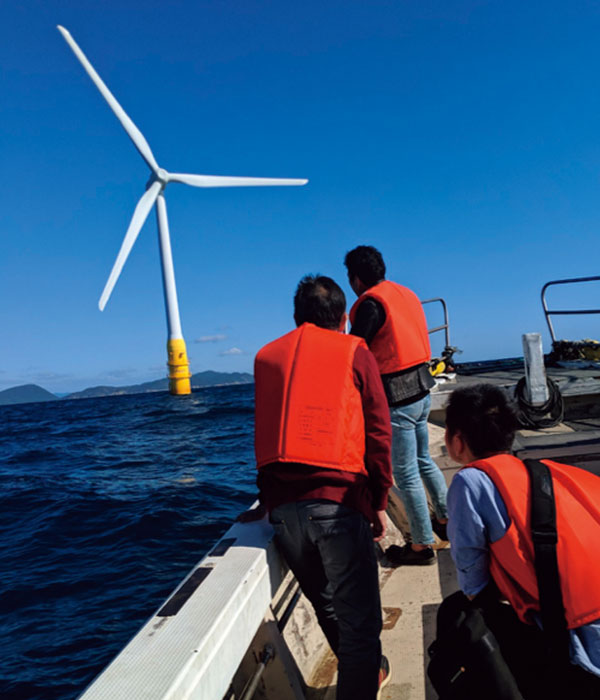
* This article was originally printed in Tansei 43 (Japanese language only). All information in this article is as of September 2021.






